
 You have to love a town where the cemetery looks like a city of miniature houses. The scale of these houses is that of a large luxury playhouse.
You have to love a town where the cemetery looks like a city of miniature houses. The scale of these houses is that of a large luxury playhouse.Families, and friends of family occupy each small space, much in the way some of them shared one half of a double shotgun house, or a housing project apartment. It's all rather cozy and comforting to think of going to a nice house instead of a hole in the ground.
Recently a beloved personality moved into his little play house. All his big boy toys were brought around for one more play date. His name: Al Copeland.
Al Copeland, a hard-charging, high-living entrepreneur built an empire on spicy fried chicken and fluffy white biscuits, died in Munich, Germany, of complications from cancer treatment. He was 64. He had gone to Munich for treatment of his illness, which had been diagnosed in November.
Born in poverty, Mr. Copeland burst onto the scene in 1972, when he opened his first Popeyes fried chicken store. There are over 700 Popeyes world wide.
The money he earned led to public displays of opulence, such as speedboats kept in a glass-walled showroom along the Interstate when he wasn't racing them, a Lamborghini parked outside his corporate headquarters and, of course, the massive Christmas displays that required police to direct the traffic outside his home (featured on many TV shows including HGTV).
There were over-the-top weddings that ended in equally spectacular divorces. Not even bankruptcy, the result of buying Church's Fried Chicken Inc., stopped him. Although Mr. Copeland lost ownership of his chicken outlets, he retained control of the company making the distinctive spice mixture, and he went on to open restaurants bearing his surname, as well as establishments featuring California cuisine, wrap sandwiches, cheesecake and Asian fare. One such restaurant, Straya (now The Cheesecake Factory) triggered a noisy public feud in 1997 with novelist Anne Rice. She used her voice-mail message and a series of full-page advertisements in the newspaper to attack the restaurant's decor, which included tasseled black curtains and a pair of sleek black-leopard sculptures flanking the entrance to the rest-room area. "The humblest flop house has more dignity than Mr. Copeland's structure," she said in her opening statement. One reason she felt so passionately about the building, was that she said that the Vampire Lestat, her dominant character, left her there, before Straya opened, after seeing his reflection in the window of what had been a Mercedes-Benz dealership. Rice also said she had planned to open her own restaurant, Cafe Lestat, but that never materialized. Copeland's response, also in a full-page ad in the newspaper, was good-humored, offering to treat her to dinner and to help her find Lestat. He even spoke of launching a month long "Find Lestat" promotion and dressing his staff like vampires. This wasn't Al's only high-profile skirmish. In December 2001, he got into a fist fight with Robert Guidry, a former casino owner, and his sons in a fancy restaurant. The two multimillionaires had been rivals for a riverboat-casino license in 1993. Each man accused the other of starting the brawl. Guidry and two of his sons spent the night in jail. No charges were filed.
Al Copeland was a classic entrepreneur and self made man. He had disappointments, things that didn't work out, but this never stopped him. His success came from a tremendous desire to succeed against all odds. His family lived for awhile in a housing project, and he never finished high school. When he was 18, he sold his car to get capital to buy a doughnut shop from his brother, and he turned the shop into a moneymaker. Then he watched what happened when a Kentucky Fried Chicken opened nearby. Inspired by the amount of business the store did, Al decided to start frying chicken. After two years of testing recipes on friends and family, he opened Chicken on the Run in 1971. Its slogan was "So fast you get your chicken before you get your change." The new business struggled, because Mr. Copeland was flavoring the chicken with a mild recipe. Realizing that bland fried chicken was going nowhere, he started using his spicy recipe. To show that he was operating a new business, he decided to change its name. According to corporate lore, he was stumped until he saw "The French Connection," in which Gene Hackman won an Oscar for his portrayal of Jimmy "Popeye" Doyle, a brusque, no-nonsense New York City policeman. At that point, the business had a name: Popeyes Mighty Good Fried Chicken.
In an industry known for its high mortality rate, the restaurant started turning a profit in three weeks. The Popeyes craze was on, fueled by a popular jingle, "Love That Chicken From Popeyes," -- that Dr. John sang. In 1977, franchising began, and within a decade Popeyes was the third-largest fast-food chicken chain in the country, behind KFC and Church's.
Along the way, Mr. Copeland was married twice -- the first time to Mary Alice LeCompte, his childhood sweetheart, and the second time to Patty White. Both marriages ended in divorce, and the first Mrs. Copeland died in 1995.
As he built his business, Al developed his public persona, and he was elevated to the status of a local icon and celebrity. He was a man who could be counted on to show up in a flashy car, wearing flashy clothes and looking perpetually tanned and surgically youthful.
Al Copeland gave back. He became a "secret Santa," underwriting gifts for 1,000 needy children that Santa Claus delivered after dark on Christmas Eve. The man who never finished high school established the Alvin C. Copeland Endowed Chair of Franchising at Louisiana State University. He also supported the National Food Service Institute and Delgado Community College's apprentice program for aspiring chefs.
1991 was the year that it all seemed to catch up with him. In 1988, he made a $296 million bid to buy Church's. The next year, the firm agreed to be bought out for $392 million. To finance it, Copeland had to borrow about $450 million. In November 1990, Al Copeland Enterprises, the umbrella organization for Mr. Copeland's activities, said that it was in default on $391 million in debts and that it would be bankrupt if a lender demanded payment. In September that year, it had failed to make payments totaling $7.5 million. The banks that had lent money for the Church's deal filed an involuntary Chapter 11, putting Copeland Enterprises into bankruptcy. Al Copeland lost control of his fried-chicken enterprise, but he kept control of the spice supply, a move regarded as brilliant.
Two months after this, Al had a lavish Valentine's Day wedding with Luan Hunter at The New Orleans Museum of Art. A helicopter, known as the chicken chopper, hovered low enough to scatter rose petals. Fireworks lighted up the sky with the words "Al I'll Love You Forever, Luan." The marriage lasted nine years.
Al headed down the aisle one more time, in December 2000, to marry Jennifer Devall. It was THE aisle of all aisles in St. Louis Cathedral, a fact that set tongues wagging about the propriety of such an event for the multiply divorced Mr. Copeland. A spokesman from the church pointed out that the ceremony respected canonical rule because only one of Mr. Copeland's weddings -- his first -- occurred in a church, and his wife from that wedding had died, thereby dissolving what the Catholic Church regards as a lifelong marriage bond. This wedding had a fairy-tale beginning, with the newlyweds arriving for the reception at Mr. Copeland's house in a horse-drawn pumpkin coach and walking beneath a line of crossed sabers held aloft by people dressed like wooden soldiers. Despite the over the top launch, this marriage also dissolved. The divorce was granted last year.
Al stayed busy. In addition to restaurants, he had invested in three comedy clubs and three hotels. At his death, a menu for a Brazilian-style restaurant was being tested in two Midwestern cities.
Relentless activity, living large and generous was typical of him. He will be missed. Grab a box of Popeyes and head for his little playhouse. Spread a blanket on the grass, or sit on the steps of his new home, and visit for awhile. Al always loves good food and good company.

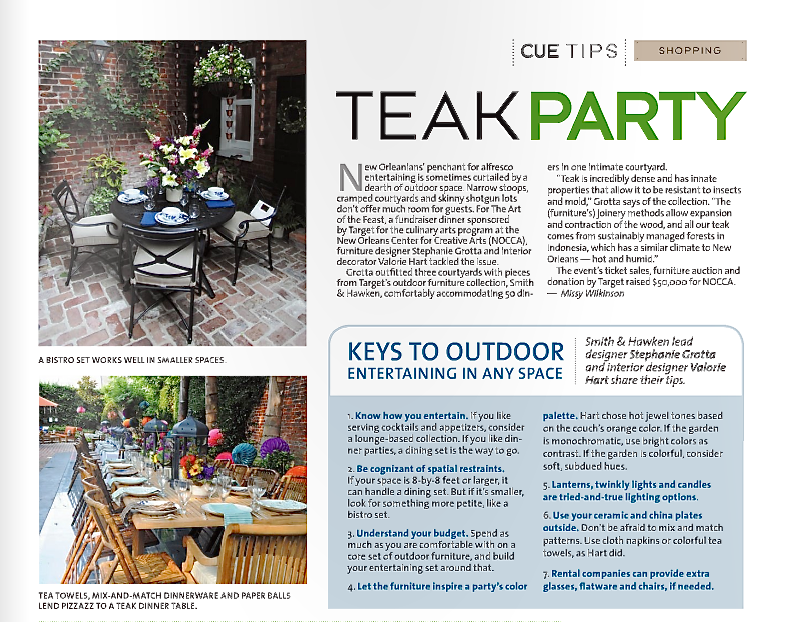




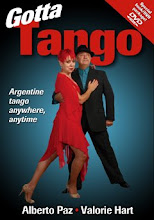

























































































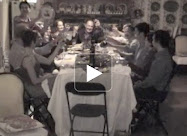
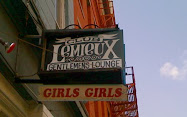

















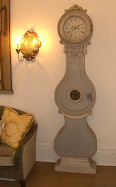.jpg)









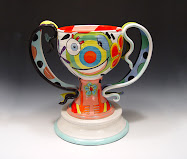
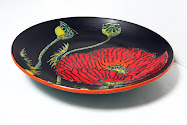

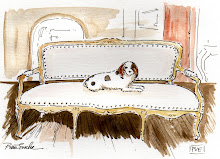









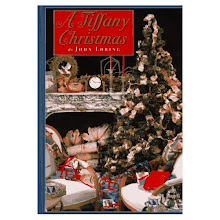

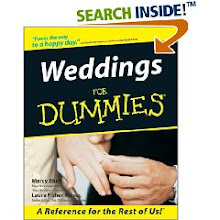


No comments:
Post a Comment